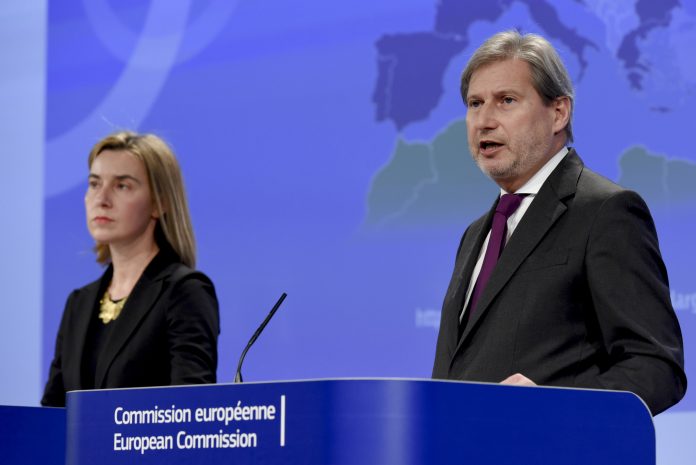The European Union’s High Representative/Vice-President Federica Mogherini and Commissioner Johannes Hahn issued a joint statement on June 12 to congratulate the prime ministers of Greece and the former Yugoslav Republic of Macedonia (FYROM) on their “historic” agreement on the “name issue”.
Under the deal, FYROM will be named Severna Makedonija, or Republic of North Macedonia. Also, its language will be Macedonian and its people known as Macedonians (citizens of the Republic of North Macedonia).
The text of the agreement will be signed on June 16 on the shores of Lake Prespa, which spans the countries’ borders.
“This achievement belongs to the leaders of the two countries and their teams, but first and foremost it belongs to all the citizens of both countries, and of Europe as a whole,” read the joint statement. “The negotiating process, under the auspices of the United Nations and the mediation of the personal envoy of the UNSG, Matthew Nimetz, and with the European Union’s strong support, is also clear proof of the power of multilateral diplomacy, dialogue, respect and willingness to find win-win solutions to even the most difficult of issues.”
“Together, we must now make good use of the window of opportunity that has been pushed wide open to accompany and consolidate the winds of peace and cooperation in the entire region.”
According to the statement, it is now up to the European Council to open accession negotiations with FYROM later this month.
“This is not only merited, in recognition of the considerable reform results of the country, but it will contribute crucially to the full implementation of the agreement in the interest of both countries, of the region and of our Union as a whole.”
As reported by the BBC, the deal comes after years of protests and seemingly endless diplomacy. The aim of the deal is to remove Greece’s block on its neighbour’s bid to join Nato and the European Union. But first it will need to be approved by the Macedonian people and Greek parliament.
The two sides had earlier dropped a number of alternatives, including Gorna Makedonija (Upper Macedonia), Nova Makedonija (New Macedonia) and Ilinden Macedonia.
The name Macedonia already belongs to a northern region of Greece that includes the country’s second city Thessaloniki. By adopting the same identity in 1991, the new Slavic nation infuriated many Greeks, who suspected their northern neighbour of territorial ambitions.
In a separate report, the Reuters news agency quoted Greece’s Prime Minister Alexis Tsipras. “I’m happy because we have a good deal which covers all the preconditions set by the Greek side,” he said.

